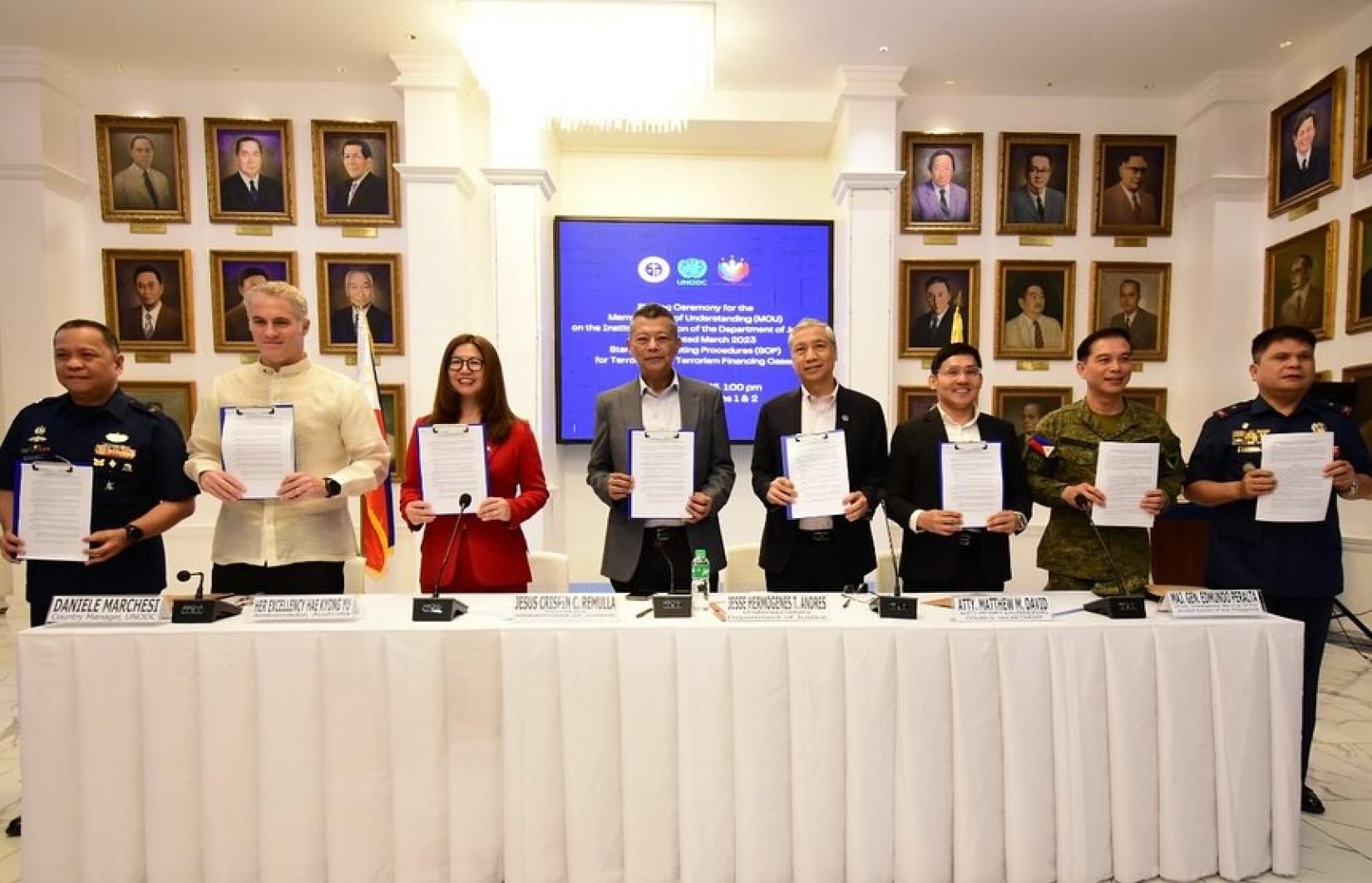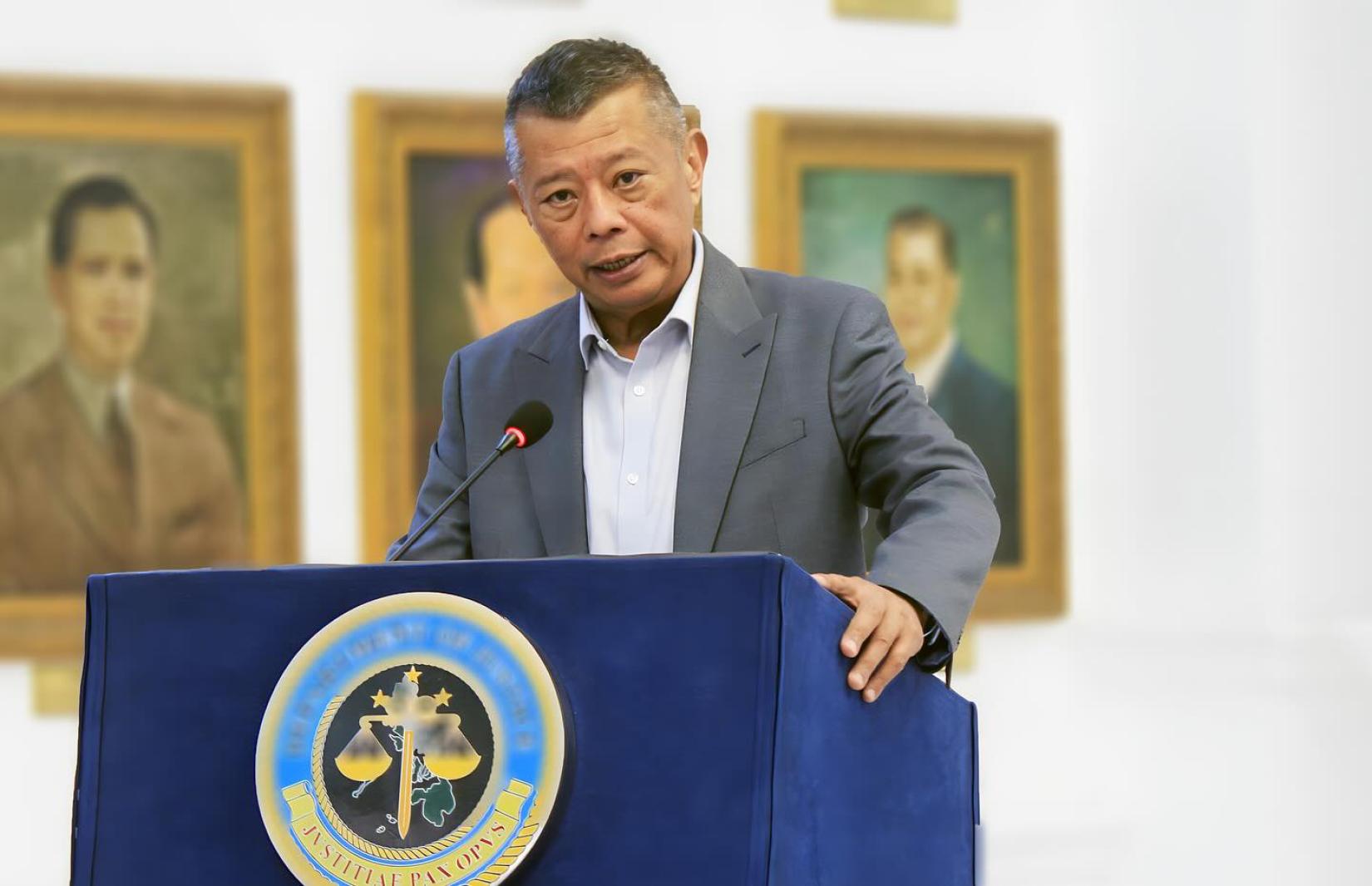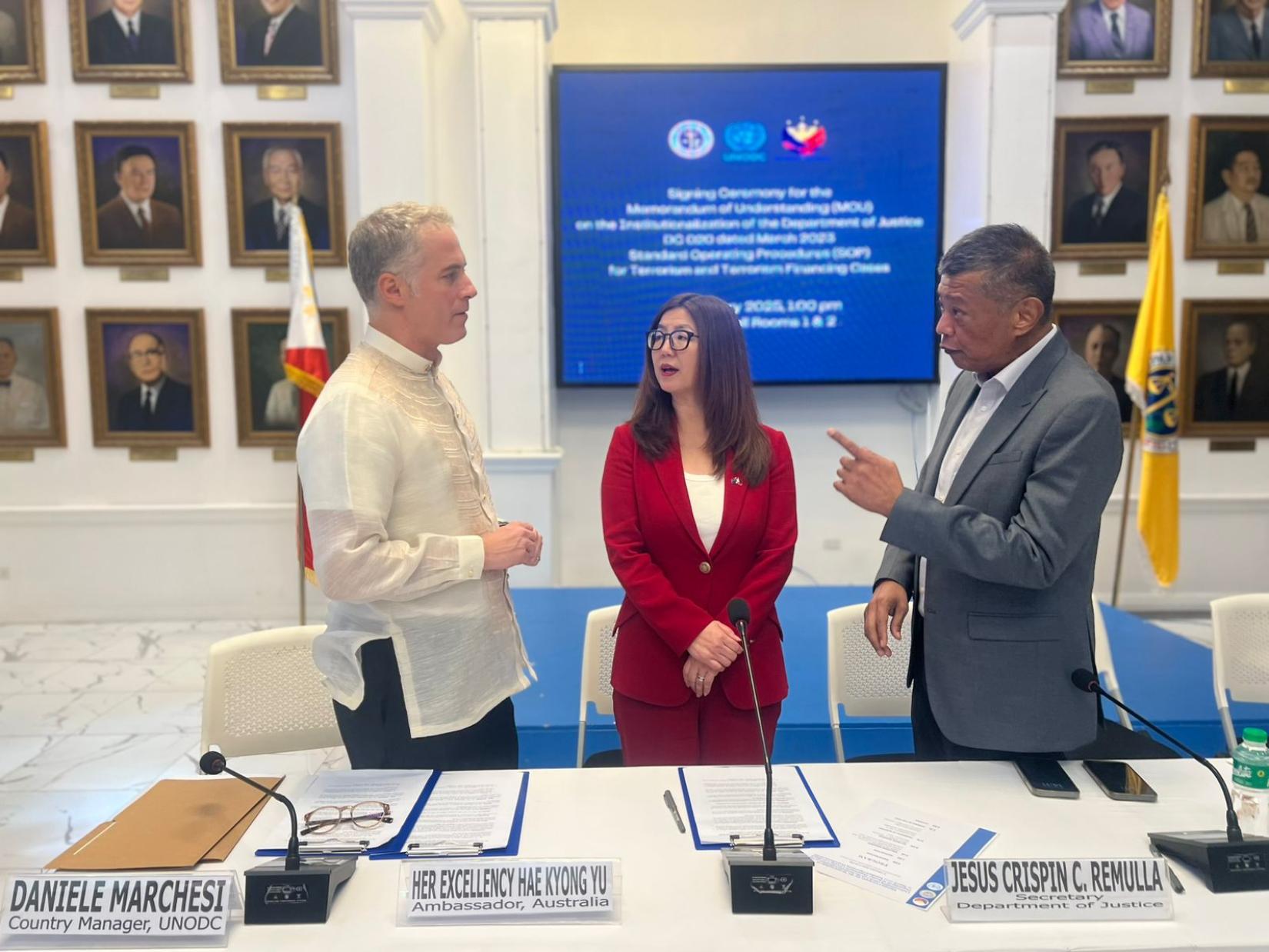The Philippines operationalizes policy on terrorism and terrorism financing
22 January 2025
--

Manila (Philippines), 17 January 2025 – The Department of Justice (DOJ), alongside key Philippine criminal justice agencies, signed a Memorandum of Understanding (MOU) today to operationalize a policy on terrorism and terrorism financing cases. This milestone will allow experts to adopt Standard Operating Procedures (SOPs) that focus on case build-up, which involves gathering all the necessary evidence, facts, and information to support a legal case, making the prosecution and investigation of terrorism more effective.
“These SOPs provide much-needed clarity and structure to the processes of investigation and prosecution in terrorism and terrorism financing cases. They reaffirm our commitment to delivering justice with precision, fostering collaboration across agencies, and upholding the fundamental principles of human rights,” said Department of Justice Secretary Jesus Crispin Remulla.

The initiative operationalizes DOJ Department Circular No. 20 (DC 20), issued in March 2023, which emphasizes the proactive role of prosecutors in case build-up for serious offenses.
The SOPs were collaboratively developed over 2024 by a technical working group comprising the DOJ, the Anti-Money Laundering Council, the Philippine National Police, the Intelligence Service of the Armed Forces of the Philippines, the National Bureau of Investigation (NBI), and the Philippine Coast Guard. The process was supported by the UN Office on Drugs and Crime (UNODC) in the Philippines and funded by the Australian Government.
The SOPs are envisioned to be institutionalized through targeted training and workshops, equipping agencies to integrate them into daily operations and ensuring alignment with national and international standards for handling terrorism and terrorism financing cases.
A holistic approach to justice
By providing clear, actionable steps for case build-up, evidence handling, and inter-agency coordination, the SOPs aim to ensure that complex cases are handled effectively while safeguarding human rights, including due process rights.
“These SOPs equip Philippine agencies with a comprehensive, rights-based framework tailored to meet the complex challenges of counterterrorism. By promoting operational coordination and embedding human rights safeguards, this initiative reinforces the Philippines’ commitment to a justice system that is both resilient and principled,” said UNODC Philippines Country Manager Daniele Marchesi.

The SOPs reinforce existing guardrails intended to protect the rights of individuals accused of any violation of the Anti-Terrorism Act of 2020 or the Terrorism Financing Prevention and Suppression Act throughout investigations and prosecutions. These include strict adherence to the right against unlawful detention, protection of personal data in line with international privacy standards, and mechanisms to prevent coercion or the use of evidence obtained through torture.
In cases involving vulnerable groups or witnesses, the SOPs provide additional layers of protection, such as access to psychological support and confidentiality measures.
Building a sustainable framework
Beyond supporting the Philippines’ efforts to exit the Financial Action Task Force ‘grey list’, in which the country has been since 2021, they aim to establish a sustainable, rights-based framework for effectively addressing terrorism and terrorism financing through enhanced coordination and accountability.
“Australia is proud to have supported the development of these SOPs, which demonstrate how inter-agency collaboration can help to address terrorism and terrorism financing. This framework will improve the quality of cases, generate better justice outcomes and enable a justice-led approach that upholds the rule of law and human rights.[U2] ,” said Australia’s Ambassador to the Philippines, HK Yu.
UNODC has been an integral partner in this process, she added, facilitating technical working groups and workshops providing expertise to align the SOPs’ framework with international best practices.
Advancing Justice for All
The SOPs are designed not only to address the immediate needs of terrorism-related cases but also to serve as a model for broader institutional reforms within the Philippine’s criminal justice system.
As these SOPs are adopted into the operations of each agency, the DOJ and its partners aim to institutionalize the framework through policy issuances, ensuring its sustainability and impact. This institutionalization underlines the Philippine government’s commitment to enhance its criminal justice mechanisms, address national security concerns, and ensure that human rights remain a central tenet of its counter-terrorism strategies, Marchesi added.

